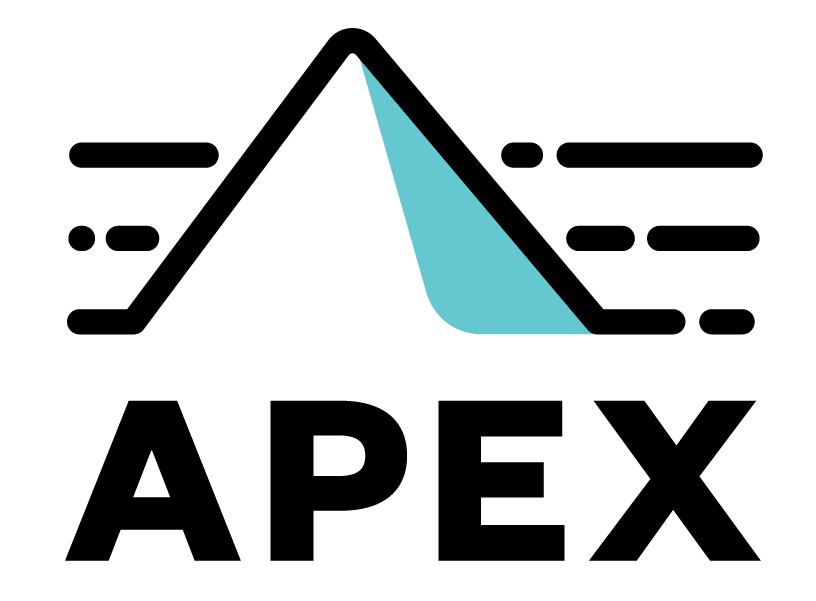Capstone Program
Capstone
Launch Your Career
16 weeks
Instructor-led, Team-oriented
Full-time, Monday-Friday (45+ hours per week)
Launch School’s Capstone Program is an intensive process designed to give students who completed the Core Curriculum a career-launching job. It is an optional, admissions-based program that requires 16 weeks of full-time focus.
Capstone is modeled after a graduate school thesis - and its projects, graduates, and salaries are industry leading, rivaling those at top-tier universities. Please see Launch School’s Results & Outcomes page for average graduate salaries and duration to accepted offer.
Unlike Launch School’s Core Curriculum, Capstone transitions away from Mastery-Based Learning and applies mastered fundamentals to high-level concepts. We call this Just in Time Learning.
Tuition
The Capstone tuition fee is calculated from our Income Sharing Agreement (ISA), which is 18% of your first year salary, or $18k (USD) - whichever is higher. While we do not foresee any upcoming changes, before you sign an ISA contract we reserve the right to change this figure at any time.
Launch School does not charge major upfront fees to join the Capstone Program. To participate in Capstone we require a small down payment, and the remaining bulk of the fee is paid off once you accept a job offer and start receiving pay checks.
Launch School’s ISA considers base salary only and excludes bonuses, raises or equity compensation. This allows us to offer the lowest cost ISA on the market with industry-leading results.
Capstone Curriculum
Disclaimer: The Capstone Curriculum is constantly being updated to reflect the industry’s demands. As Launch School’s Core Curriculum is the prerequisite for Capstone, there is usually a long duration – perhaps years – between now and your Capstone experience. We ask that you treat the following as a general guide, as things may have changed between your reading this page and when you participate in Capstone.
Capstone can be roughly divided into several major phases:
Since Capstone only serves Core graduates, we can jump straight into the types of exercises that top employers use in selective software engineering interviews. We don't cover everything there is to know about DS&A. Instead, we focus on the most common topics and exercises from hundreds of Capstone job interviews.
Here, students learn about system design concepts and how to scale a typical single-VPS instance to an n-tier infrastructure comprised of numerous servers. This is an entryway conversation into the world of distributed systems.
A major goal of Capstone is to ask Core graduates to shift their thinking beyond coding and into deployment and data. Students will ask themselves “What happens when you deploy your code and it meets data?”. The answer to this primary question depends on a multitude of variables. Students will spend time learning about why one might need to adjust these variables and the consequences of those adjustments. This is the primary distinction between programming and software engineering; the former deals only with code whereas the latter deals with code plus data in a deployed environment.
We will also have hands on exercises around setting up servers and building a service-to-service application.
The next phase is split between modern full stack and project ideation. Our modern full stack curriculum is designed to help graduates navigate the proliferation of modern frameworks. We begin with a hands-on exploration of common frontend architectural patterns and performance challenges. From there, we examine API design in production systems, and discuss the emerging impact of cloud and edge platforms on web rendering. The focus here is on forming strong mental models around frontend and API concerns, client and server-side rendering tradeoffs, and other exotic deployment permutations.
The ideation process also begins during this phase. This is a continuation on the topics around distributed systems and modern full stack deployment architectures and the problems they cause. Focusing on the problems is where students look for opportunities for solutions. Once the problem is deconstructed and understood, the project (aka solution) arises.
Students will then spend a significant amount of time on the Capstone Project, which is modeled after a Master's thesis or a PhD dissertation. Each team is assigned a Capstone mentor (industry software engineer) who offers guidance alongside Capstone staff. Paramount to this process is taking a very engineering-centric approach, which means centering on the problem deconstruction and exploring tradeoffs between various solutions. The research project asks participants to dive deeply into a narrow problem domain. Every Capstone project is a unique research project, and the goal is to review all pertinent literature to become subject matter experts in that domain. While staff and mentors provide guidance, Capstone participants will base the project on their own personal work and research, producing unique solutions based on their analysis of the problem domain.
After the 16 weeks of Capstone work, participants begin the Career Search. Launch School walks participants through a battle-tested job hunt process that includes resume review, tips and guidance, and assignment to a job hunt mentor. Importantly, this job hunt process shows you how to launch a career by walking through the front door. There are no tricks or secret referrals. You will simply go ask for money and ask for a chance to prove yourself. We'll guide you through a process that you can use over and over throughout your career.
Student Support
Capstone Mentors
Every Capstone team is assigned a working software engineer as a mentor, who provides an additional layer of support during Capstone. Mentors work at industry-leading companies and will meet with you and your team to provide mentorship and guidance on the problem domain your team is researching. All mentors are Capstone alumni, so they will draw on their own personal Capstone experiences to guide you on your Capstone journey.
Additional Support
In addition to project mentors, Capstone students also have access to the following student services throughout Capstone:
- Dedicated Capstone staff
- Capstone Alumni Q&A sessions
- Industry Guest Speakers
- Job Hunt mentors
- Access to Capstone Alumni
- We tweak every cohort with updates, so this list isn't comprehensive
In Capstone, we can go all-out to provide the absolute best support possible. The above list is just some things we do for every cohort, but we tweak and improve the experience with every cohort and you'll be getting the best Capstone to date.
Admission Requirements
Capstone's aim is to help you compete for top software engineering jobs. For this reason, we ask that you are also aligned with this goal and that you are able to meet the following requirements:
Performance Requirements
- Complete Launch School’s Core Curriculum.
- Perform well on a majority of the assessments with demonstrated excellence in technical proficiency and high work ethic.
- All Core Curriculum assessments must have been completed within the last 18 months. An Assessment must be retaken if its completion is over 18 months.
- Demonstrated professional and courteous interactions with students and staff at Launch School.
- Be ready to learn full-time for the entire duration of Capstone, including some evenings and weekends. The time commitment for Capstone is a minimum of 45 to 60 hours/week, which includes the Career Search Phase. In its entirety, it could last 4-7+ months (or longer, depending on your job hunt duration).
Location Requirements
We would especially like to encourage US residents to apply to Capstone, however we have also worked with residents in other countries including Canada and UK. Please keep in mind that non-US residents’ results and outcomes will differ. See the Results & Outcomes page for more information.
If you are not a resident from one of the countries above but would still like to participate in Capstone, please see the FAQ section below.
Admission Rate
While the Capstone admission rate may vary over time, right now it remains quite high. Capstone admissions are determined by the number of people who finish Launch School’s Core Curriculum with high grades. As the Core Curriculum is a difficult program, those that finish with high grades are already considered to be job ready and are therefore qualified for Capstone.
That being said, there are several reasons why we may not be able to admit someone into Capstone, some of which include:
- Performance during the Core Curriculum: Consistent underperformance in assessments will decrease a person’s chance of being admitted into Capstone.
- Interpersonal skills: We have a strong preference for kind, generous, professional people that communicate well. On rare occasions, we have some students who are technically capable, but are not able to get along with our staff and other students.
- Personal circumstances: Every student’s personal situation is treated on a case-by-case basis. If, for example, an applicant had major travel plans, such a situation would not be able to work during Capstone.
FAQs
No, not exactly. We've had Capstone participants finish Core in under 6 months to those who spent over 3 years. The main attributes we're looking for is readiness for Capstone, which includes technical mastery, strong communication ability, professional presence, empathy for others, and a readiness to perform. For example everything else being equal, we would rather admit someone who spent a long time in Core with excellent assessment feedback over someone who rushed through Core with mediocre to low performance. However, if the duration is very long, we might ask you to retake some assessments just to make sure the topics are fresh in your mind. So while there's no hard time limit, we need to be convinced that you are ready for Capstone.
There are three Capstone cohorts throughout the year: Spring, Summer, and Fall. The spring cohort typically starts early January, summer in May, and the fall cohort in late August or early September. The cohort finalizes a couple of months before the official start date, so Capstone participants must finish the Core Curriculum at least 6-8 weeks before the cohort start date in order to complete the Capstone preparatory work.
No, this would not be possible. The Capstone Program requires full-time attention. If you do have extra time, we would prefer that it is used to take a break and rest. When you join Capstone, you're very close to breaking through to a great engineering-centric job. Keeping a laser-focus on this goal will help make that happen within a few months. Having a low or medium-paying job, full-time or part-time could pose as a distraction from this goal.
Capstone will cover all relevant topics that top employers demand, including the following (not a comprehensive list):
While we have a strong preference for US-based residents, we have made exceptions for Capstone participants from Canada, UK, Australia, China, and India. Exceptions heavily depend on your Core Curriculum performance. If you do well, there's a strong likelihood that we will make an exception for you in Capstone— no matter where you live.
That said, Capstone is synchronous and we expect people to be available approximately 8am - 5pm US Pacific time. This requirement can result in very odd hours over the 16 week period. The Capstone fee also remains the same (minimum fee of $18k USD). Non-US salaries are much lower than US software engineering salaries, so you must decide if it is worth your time and monetary investment.
Further, we have less graduate data to share so expected results can vary. We've had several Capstone graduates in Toronto and London, but have limited data for other cities. If you still choose to participate in Capstone, it is likely we will not be able to determine your post-Capstone salary.
Although we do not have concrete Capstone data for all countries, generally speaking Capstone graduates are able to get offers similar to that of good undergraduate CS programs in your locale.
What We Can't Do
- We won't be able to work with US/Canadian residents who wish to travel the world or live elsewhere as companies are not going to accept that. Even remote roles have boundaries, especially when it comes to intellectual property issues.
- We can't help with visa issues. You must only job hunt in the country in which you can legally work. For example, if you are not a US citizen, you cannot use Capstone to try to get a job in the US.
- If you don't reside in the US, we can't target US companies with remote jobs. You must job hunt in the country where you can legally work and target local companies.
You probably do not need Capstone to get just any programming job, but it depends on a lot of factors - such as your location, prior work history, charisma, compensation demands, etc. However, the goal of the Capstone program is to maximize your time and energy to get the best job possible and kickstart your software engineering career. See this article on Avoiding the Career Transition Gap for some context about Capstone's goal.
The scheduled Capstone coursework is 16 weeks. We also advise students to expect a 1-3+ month career search process after the coursework. The total Capstone duration is 5 to 7+ months. It could also take longer, so you do have to prepare for that.
The Capstone Program is quite different from a lot of coding bootcamps in a number of ways:
Most coding bootcamps teach topics that are covered in the pre-requisites to Capstone. This allows Capstone to cover much more advanced concepts and partake in engineering-centric conversation. We require students to learn the fundamentals first before entering Capstone. In fact, it's not uncommon to see projects that Launch School students complete before entering Capstone to be at the same level of the final projects of some bootcamps. Thus the projects produced in Capstone go well beyond the projects found bootcamps in terms of complexity and depth.
Capstone is also modeled after a university-level Master's program, with intense discussions and research-oriented projects. Coding bootcamps on the other hand are modeled after traditional factory-style education and are built to mass produce high quantities of graduates as quickly as possible.
Lastly the goals are very different. Coding bootcamps aim to get people into their first programming job. Capstone's goal is to launch careers at the optimal roles possible. We do this by only admitting students who have mastered fundamentals. We then put them into an intense, intimate, and focused environment that pushes the boundaries of their capability. This type of program only makes sense for the most studious of students who have long-term ambitions of building long-lasting careers as Software Engineers.
Because of the difference in the students and in the topics covered and program goals, the salaries coming out of Capstone are significantly higher than the top bootcamps, and rival that of top universities.
In most one-on-one mentoring programs, you're assigned a mentor who will work with you one on one through fundamentals. While this is helpful, we believe that walking you through the fundamentals is not the best use of a mentor's time. This part of the learning phase we call “the plateau”, is often lengthy and circular, spreading out over months or years. Hiring a mentor could be a valid choice, however our pedagogy uses Mastery-based Learning through fundamentals prior to Capstone.
Effort and practice are more important while learning fundamentals than high-level guidance. Most other programs skip the fundamentals and have mentors work with you on projects too early. The knowledge gained through this process may not provide enough depth and instead can be tied to a language / framework. Our courses are staffed and supported by TAs, who help you get unstuck when you need it. We save instructor time until Capstone as that's where we believe the most impact can be made.
No, it is not possible to skip courses. It is very important to have solid fundamentals before you start the Capstone program. We've been teaching people programming since 2012, and the number one mistake beginners make is attempting to learn more advanced topics without a solid understanding of the basics. Our curriculum is designed so that you'll have well-rounded skills when you finish, then if you want to take the Capstone program, you'll really fly. If you've been self-learning and feel you are ready, you may be able to go through our courses fast, and all you have to do to qualify for Capstone is excel in the assessments.
We will work with you on a payment schedule that fits your situation. For example, we can do payment plans up to 24 months and we won’t charge interest or any additional fees. For example, you could pay back a $18,000 Capstone fee with a $750/month payment for 24 months after you start collecting paychecks.
To participate in Capstone, you'll need to sign a legally binding Income Sharing Agreement (ISA). Legal consequences aside, it is our hope after spending so much time with us and seeing the investment that we make in you, you will treat us fairly. If you're accepted into Capstone, that means we believe in you and are ready to put our trust in you.
Next Steps
For further inquiries regarding Capstone, please email hello@launchschool.com.
As Capstone is our finishing program to the Core Curriculum, please also take some time to read through our Core Curriculum Page.
Capstone Testimonials
Below are students who completed the Launch School Core Curriculum and graduated from the Capstone Program, which typically lasts from about 1-2+ years. Read their stories to get a feel for their Software Engineering journey and transformation.









































Capstone Projects
As part of the Capstone Program, students organize into teams to work on a Capstone Project. Below are some of the engineering projects that have come out of Capstone.






Fjord is an open-source framework that allows end users to receive Kafka streaming data in real-time.






Retrospect is an observability tool that allows you to record back-end activity in an easily searchable manner replacing the process of pinging servers and searching logs.






Tapestry is an open source orchestration framework for the deployment of user entity data pipelines.





Guardrail is an open source tool that generates regression tests for microservices using captured HTTP traffic.






Pioneer is a self-hosted feature flag management tool which lets users manage the rollout of new features in a deployed application.





Pilot is an open-source multi-cloud framework that provisions an internal PaaS with a workflow-agnostic build deploy and release pipeline.






Gander is an open-source solution for deploying isolated ephemeral apps based on your pull requests.






Tacklebox is an open-source serverless framework that offers webhooks as a service.






Jolt is a lightweight open-source framework that builds and deploys JAMstack applications with serverless functions.






Ekko is an open-source framework allowing developers to easily add realtime infrastructure and in-transit message processing to web applications.






Dendro is an open-source serverless monitoring framework for small distributed applications.






Beekeeper is an open-source Backend as a Service (BaaS) built to handle traffic from one-off events. It is an NPM package that creates a CLI tool to spin up AWS services which make up a virtual waiting room.






Haven is an open-source developer tool for managing your application secrets. Built using Node.js and Amazon Web Services it is easy to set up and integrate with your Node applications. It protects your secrets through encryption access control and injection at runtime.




Stagehand is a drop-in solution that provides review apps for modern frontend applications. Using AWS GitHub Actions and some Stagehand client-side code we set-up deploy manage and teardown review apps for your frontend application.





Campion is a free open-source tool to help protect your site or service from dependency failure. It is an edge-based circuit breaking middleware that utilizes an automatic fail fast mechanism when a dependency is down.






Satellite is an open-source GraphQL backend-as-a-service (BaaS). It lets teams easily deploy and manage GraphQL backends for web applications.




River is a drop-in real-time service for web applications. It provides an easy-to-deploy and ready-to-scale solution for existing applications with real-time needs.





Maestro is an open-source easy-to-use framework for deploying serverless workflows using Node.js and AWS Step Functions. Using Maestro aids development not only in the initial phase of a project but throughout the ongoing maintenance as well.





Jade is a framework that makes it simple to deploy and maintain JAMstack applications. Jade abstracts away the time and complexity of provisioning services and writing backend code related to the underlying infrastructure so developers can focus on building their applications.





A blazing fast serverless video transcoding pipeline that can be easily deployed to Amazon Web Services (AWS)




API proxy for logging and controlling traffic between microservices.





An open-source Backend-as-a-Service (BaaS) that exposes an API for common backend functionality like database persistence and user authentication.





An open-source framework for deploying and managing stream processing pipelines using Kafka for users who want to set up a streaming pipeline with minimal hassle.





An open source Heroku-like and self-hosted platform as a service built with a multi-tenant architecture using Docker and Docker Swarm.





A web-native computational notebook designed for sharing executable code alongside stylized notes. Supports multiple-languages webhooks and API calls.





A centralized logging management framework that allows for easy setup configuration and deployment using Kafka and InfluxDB





A progressive web application (PWA) compliant offline-first database for web-based mobile-first applications





An open source easy-to-use data pipeline orchestration and monitoring framework for small applications that deploys to the GCP (Google Cloud Platform)





A serverless framework for consuming webhooks at scale that deploys on AWS (Amazon Web Services)





An open-source browser-based REPL for Ruby JavaScript and Python that enables real-time collaboration between users.




An easy-to-deploy event capturing framework built with NodeJS Apache Kafka TimescaleDB and PipelineDB





A serverless framework that makes it quick and easy to get small applications up and running using Node.js and AWS




An open-source real-time collaborative text editor for the browser built from scratch in JavaScript





A decentralized (p2p) cloud storage system built atop Kademlia DHT that enforces data integrity privacy and availability through proofs of retrievability redundancy and encryption with cryptocurrency-based incentive scheme





A JavaScript framework and in-browser database adapter for building offline-first collaborative web apps






Monsoon is an open-source, serverless framework for running browser-based load tests in the cloud.

